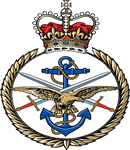Commemorated: | |||
| 1. Book: | The (1921) Masonic Roll of Honour 1914-1918 | Pg.117 | |
| 2. Memorial: | The (1940) Scroll - WW1 Roll of Honour | 45C GQS | |
Awards & Titles: | |||
Early Life :
Family :
Ian Macdonald Brown was the youngest son of Dr John Macdonald Brown, M.D. and his wife Caroline Helen, of Upper Berkeley Street, London. He was born in Edinburgh in 1889Education & Career :
St Paul's School and Downing College at Cambridge University (1910)
He came up to Downing in 1907 and was an active member of College, playing rugby, rowing and also joining the Debating and Music Societies. He appears in the Rowing Trials photograph in Michaelmas 1907 and is recorded as a Cox in the Scratch Fours winning crew ("Victorious Four") in the same Term. In his performances for the Music Society he was noted to have a 'great voice' and received 'enthusiastic encores'.
Macdonald Brown took his B.A. (Natural Sciences) in 1910 and M.A. in 1914.
After continuing his medical studies at the University of Edinburgh, he entered the London Hospital in 1911, taking the diplomas of M.R.C.S. and L.R.C.P. in July 1914.
Service Life:
Campaigns:
- The First World War 1914-1918, World-wide.
| Unit / Ship / Est.: Not Yet Known |
- |
| Action : Gallipoli |
The Gallipoli Campaign was fought on the Gallipoli peninsula 25th April 1915 to 9th January 1916. in a failed attempt to defeat Turkey by seizing the Dardanelles and capturing Istanbul. Ill-conceived and planned, the initial effort by the Royal Navy failed to force passage through the Dardanelles by sea power alone. It was then realised that a land force was needed to support the project by suppressing the Turkish mobile artillery batteries. By the time all was ready the Turks were well aware and well prepared. Despite amazing heroics on the day of the landings only minor beachheads were achieved and over the succeeding 8 months little progress was made. Eventually the beachheads were evacuated in a series of successful ruses.
Despite Gallipoli rightly becoming a national source of pride to Australians and New Zealanders, far more British casualties were sustained, and these days the substantial French contribution is almost forgotten.
Detail :
He was killed whilst attending the sick and wounded under fire near Ypres, Flanders, on 15th November 1916, age 28, leaving a wife, Dora (nee Humphries), and an infant son.
His Colonel wrote: "We are so sorry to lose him as we liked him so much, and he was such a good man at his profession, and is a very great loss to us".
A gunner wrote to Ian's family:- "At the time he received his mortal wound he was returning from D Battery after visiting the sick men, to whom he devoted all his time. The loss of the captain is very deeply felt by all the boys of the brigade, with whom he was so very popular."
He is buried in Dickebusch New Military Cemetery, Belgium (Plot L. 14).
Sources: 1. The Griffin, Lent 1909 (p.27) and Michaelmas 1916 (p.27-28) 2. Editorial Notes. Casualties. Edinburgh Medical Journal 18 (January) 1917, p.2 3. The London Hospital Gazette, 1917 Issue 193 (January), p.400
See: http://www.dow.cam.ac.uk/sites/default/files/wwi_roll_of_honour_ian_macdonald_brown.pdf for source.
Masonic :
| Type | Lodge Name and No. | Province/District : |
|---|---|---|
| Mother : | Isaac Newton University No. 859 E.C. | Cambridgeshire |
| Joined : | Royal London Hospital No. 2845 E.C. | London |
Initiated | Passed | Raised |
1st March 1910 | 26th April 1910 | 31st May 1910 |
Initiated into Isaac Newton University Lodge No. 859. Joined the London Hospital Lodge No. 2845 on the 13th December 1911. His father was a member of the same Lodge. He was recorded as "Killed in Action" against both Lodges.
Source :
The project globally acknowledges the following as sources of information for research across the whole database:
- The Commonwealth War Graves Commission
- The (UK) National Archives
- Ancestry.co.uk - Genealogy, Family Trees & Family History online
- ugle.org.uk - The records of the United Grand Lodge of England including the Library and Museum of Freemasonry
Additional Source:
- Founder Researchers : Paul Masters & Mike McCarthy
- Researcher : Bruce Littley

